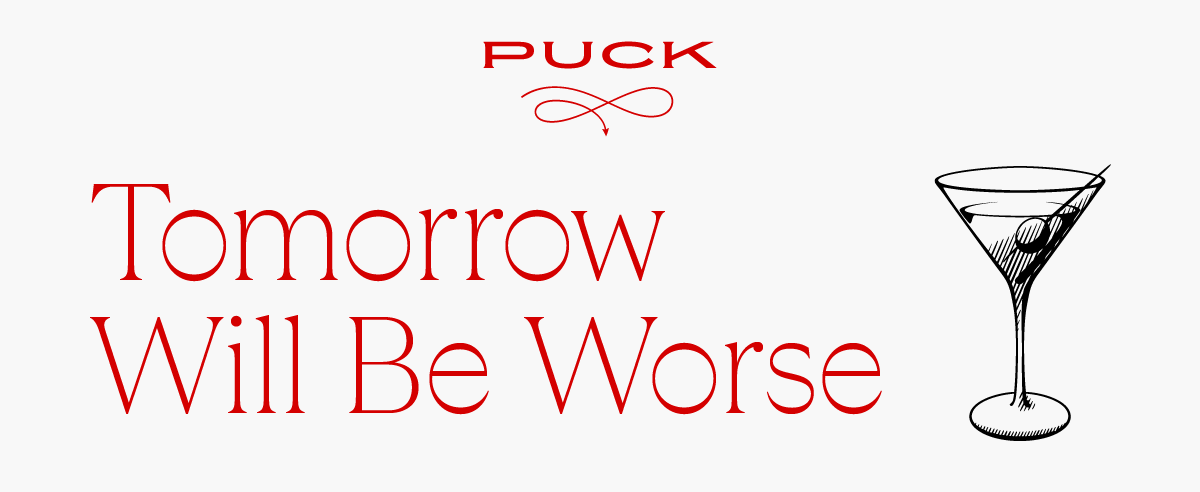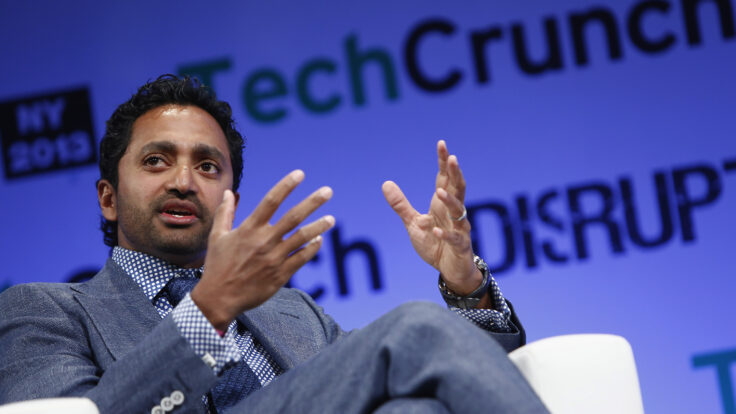|
Welcome back, I'm Julia Ioffe.
Today marks two weeks since Russia invaded Ukraine. After failing to conquer Ukraine in a matter of days, as Vladimir Putin had hoped, the Russian army has now clearly committed to a strategy of terrorizing civilians. The port city of Mariupol has been blockaded for days and there are now so many casualties—at least 1,207, according to the city’s mayor—that residents have had to resort to burying their dead in mass graves. There is so much shelling that it is too dangerous to have proper funerals. Yesterday, a giant bomb landed in the courtyard of a maternity and children’s hospital in Mariupol, killing at least three people and injuring 17. The world saw images of injured women, pregnant or newly postpartum, being evacuated past a two-story tall crater. In response to the universal outrage, the Russian embassy in Britain released a string of tweets—since removed by Twitter—accusing the injured Ukrainian women of being crisis actors in make-up. The Russian Defense Ministry called it a “provocation by the regime in Kyiv.”
For those of us who have been studying and reporting on Russia for a long time, this is exactly what we knew would happen once the Russian army got bogged down. While Americans cheered and meme-ified the war, we braced for what we knew was coming: the wholesale punishment of Ukrainian civilians. The point, as it was in Chechnya and Syria, is to destroy morale among the population so that they no longer support their government and will do anything for an end to the war—including full surrender. (“The idea is to weaken the civilians to make those living under the opposition areas feel life is hell,” one Syrian told a reporter in 2016, when Russia was bombing aid convoys and hospitals in the country. “By targeting bakeries, schools, and hospitals, you make people lose all hope.”) So far, it’s not happening, but it’s only been a week and no one has any hope for the negotiations. The worst is yet to come.
P.S. As a reminder, you're currently receiving the free version of Tomorrow Will Be Worse at . For full access to my reporting, and to all of my talented colleagues at Puck, consider subscribing here to support the work we're doing together.
Within Putin’s propaganda machine, where injured Ukrainian mothers are “crisis actors” and Zelensky is a neo-nazi stooge, polls show two-thirds support for Russia’s “special military operation.” But how much of the public’s consent is manufactured? And could a generational divide provide a sliver of hope? Ever since the Russian army invaded Ukraine, I am constantly asked: what do the Russian people think about the war? Do they support it? This is a deceptively difficult question to answer. Even before the war, when Russia was an authoritarian country with a small, marginalized independent press, it was hard to separate what people actually believed from the sanctioned talking points they would parrot from state-owned television. How many Russians, after all, would give their true and unvarnished opinion to a stranger from an official-sounding organization, calling out of the blue?
Of course, the job of the Russian pollster is that much harder now that Vladimir Putin has pushed the country into full totalitarian mode, shut down what was left of the independent media and criminalized any deviation from the official line on the war. Moreover, as I’ve noted before—and as a group of independent Russian sociologists recently documented—the majority of Russians do support the war, but only as they experience it in an informational blackout. It is not the same war that we in the West are seeing. Instead, they are told, it’s an easy, limited military operation to liberate the grateful Ukrainian people from Nazis, and with few casualties among the Russian military or the Ukrainian people.
I also wanted to understand what people outside my cohort—Russian journalists and creative types who fled en masse with the outbreak of the war—thought. They are all unanimously and loudly against the war, but I am well aware that they are not a representative sample. (As Peter Kafka noted when I joined his podcast, it would be like trying to determine the mood in America by surveying people in the West Village.)
So I called sociologist Denis Volkov, who works at the Levada Center, an excellent and independent polling institution that Putin’s prosecutors have labeled a “foreign agent.” It is also the best sociological organization in Russia, and one of its oldest. Levada’s own polls showed that about two-thirds of Russians supported the war, but I wanted to get a deeper sense of the dynamics at play. Volkov and I spoke twice: today and last week, just before the Kremlin shut down the last of Russia’s independent media, making real information about the war harder to access, and before the Russian parliament passed a law making the distribution of “fake news” about the war—i.e., anything that differs from official accounts—punishable by up to 15 years in a penal colony. That includes calling the war a war, as opposed to “a special military operation.” I have amended our conversation to reflect this fact. Unlike so many people I know, Volkov is still in Russia and I do not want to land him in jail. In addition to those light adjustments, this interview has been translated, edited, and condensed. I hope you find it as informative as I did...
FOUR STORIES WE'RE TALKING ABOUT Russia’s horrific invasion of Ukraine is reshaping the global economy. For Hollywood, that means one thing: a torrent of future litigation. ERIQ GARDNER The anniversary of Stalin’s death last week was a cruel reminder inside Russia that history frequently repeats itself. JULIA IOFFE MSNBC's recent struggles begs a two-fold question: who is in charge over there and what are they doing, exactly? DYLAN BYERS On Wall Street, the horror of Russia’s invasion of Ukraine has become a uniquely dark investing opportunity. WILLIAM D. COHAN
You received this message because you signed up to receive emails from Puck.
Was this email forwarded to you?
Sent to
Interested in exploring our newsletter offerings?
Puck is published by Heat Media LLC.
For support, just reply to this e-mail. For brand partnerships, email ads@puck.news |
-
Join Puck
Directly Supporting Authors
A new economic model in which writers are also partners in the business.
Personalized Subscriptions
Customize your settings to receive the newsletters you want from the authors you follow.
Stay in the Know
Connect directly with Puck talent through email and exclusive events.
















